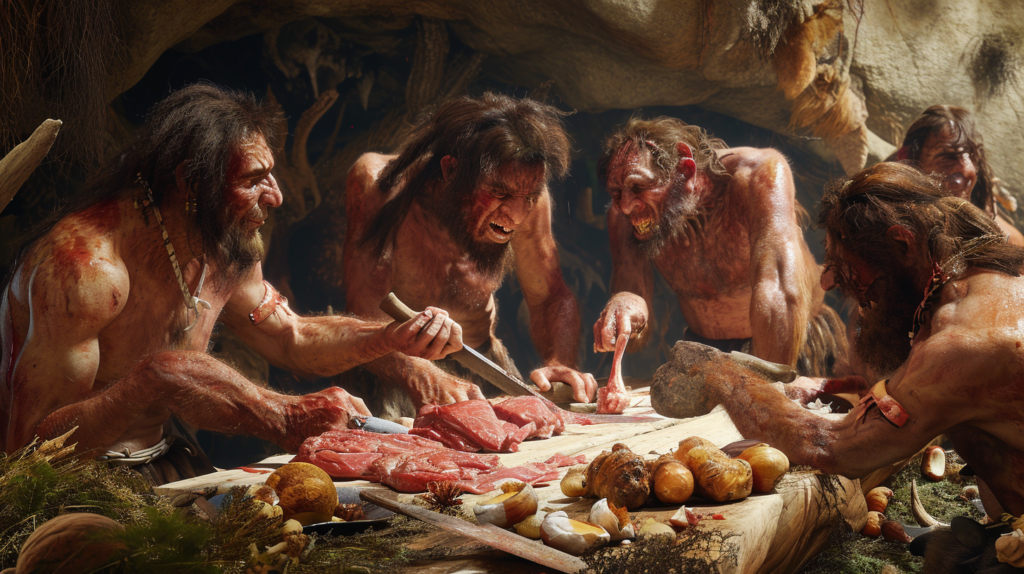The Carnivore Diet, a regimen focusing on animal-based foods, has sparked considerable interest in the health and wellness community. This diet emphasises consumption of meat, fish, eggs, and certain dairy products while excluding plant-based foods. In this blog, we delve into three key aspects of the Carnivore Diet: its alignment with human evolutionary eating patterns, its nutritional impact, and potential health risks and benefits.

1. Evolutionary Perspective on the Carnivore Diet
The Carnivore Diet is often touted as aligning with how our ancestors ate for millions of years. This perspective holds that early humans thrived primarily on animal-based foods, a diet that was instrumental in our evolutionary development. Meat, especially red meat like beef, is a rich source of essential nutrients like protein, Vitamin B12, iron, and zinc. These nutrients play a crucial role in maintaining muscle mass, brain function, and overall health. The act of chewing tougher meats, as opposed to softer, processed foods, also aids in strengthening jaw muscles, which could have ancillary benefits for bodily functions.
Furthermore, this diet is seen as a return to a more ‘natural’ state of eating, avoiding processed foods and artificial additives that are ubiquitous in modern diets. Proponents argue that a Carnivore-based diet reduces exposure to potential toxins and allergens found in many plant-based foods and processed products.
2. Nutritional Impact of the Carnivore Diet
The Carnivore Diet’s high concentration of animal products can lead to increased cholesterol levels. However, in individuals who maintain a healthy lifestyle (regular exercise, no smoking or excessive drinking), the risk associated with higher cholesterol may be mitigated. Cholesterol, contrary to common misconceptions, plays a vital role in body functions, including hormone production and cellular structure.
On the flip side, potential risks of the Carnivore Diet include the lack of dietary diversity and possible exposure to high levels of certain contaminants found in fish and some meats. The diet’s high intake of red meat has been a point of contention, with some studies linking it to increased risk of certain diseases. However, these studies often do not differentiate between processed and unprocessed meat, nor do they consider the overall lifestyle of individuals.


3. Health Risks and Benefits
The Carnivore Diet’s high concentration of animal products can lead to increased cholesterol levels. However, in individuals who maintain a healthy lifestyle (regular exercise, no smoking or excessive drinking), the risk associated with higher cholesterol may be mitigated. Cholesterol, contrary to common misconceptions, plays a vital role in body functions, including hormone production and cellular structure.
On the flip side, potential risks of the Carnivore Diet include the lack of dietary diversity and possible exposure to high levels of certain contaminants found in fish and some meats. The diet’s high intake of red meat has been a point of contention, with some studies linking it to increased risk of certain diseases. However, these studies often do not differentiate between processed and unprocessed meat, nor do they consider the overall lifestyle of individuals.
Check out our blog here, on the real value of organic food.
In conclusion, the Carnivore Diet, grounded in an evolutionary approach, offers a high-protein, high-fat dietary option that aligns with a natural, unprocessed food philosophy. While it provides certain nutritional benefits, especially for those seeking to reduce processed food intake, it requires careful consideration and possibly some modification, such as strategic inclusion of specific vegetables, to ensure overall health and well-being. As with any diet, it’s essential to tailor it to individual health needs and lifestyle, ideally under the guidance of a healthcare professional.